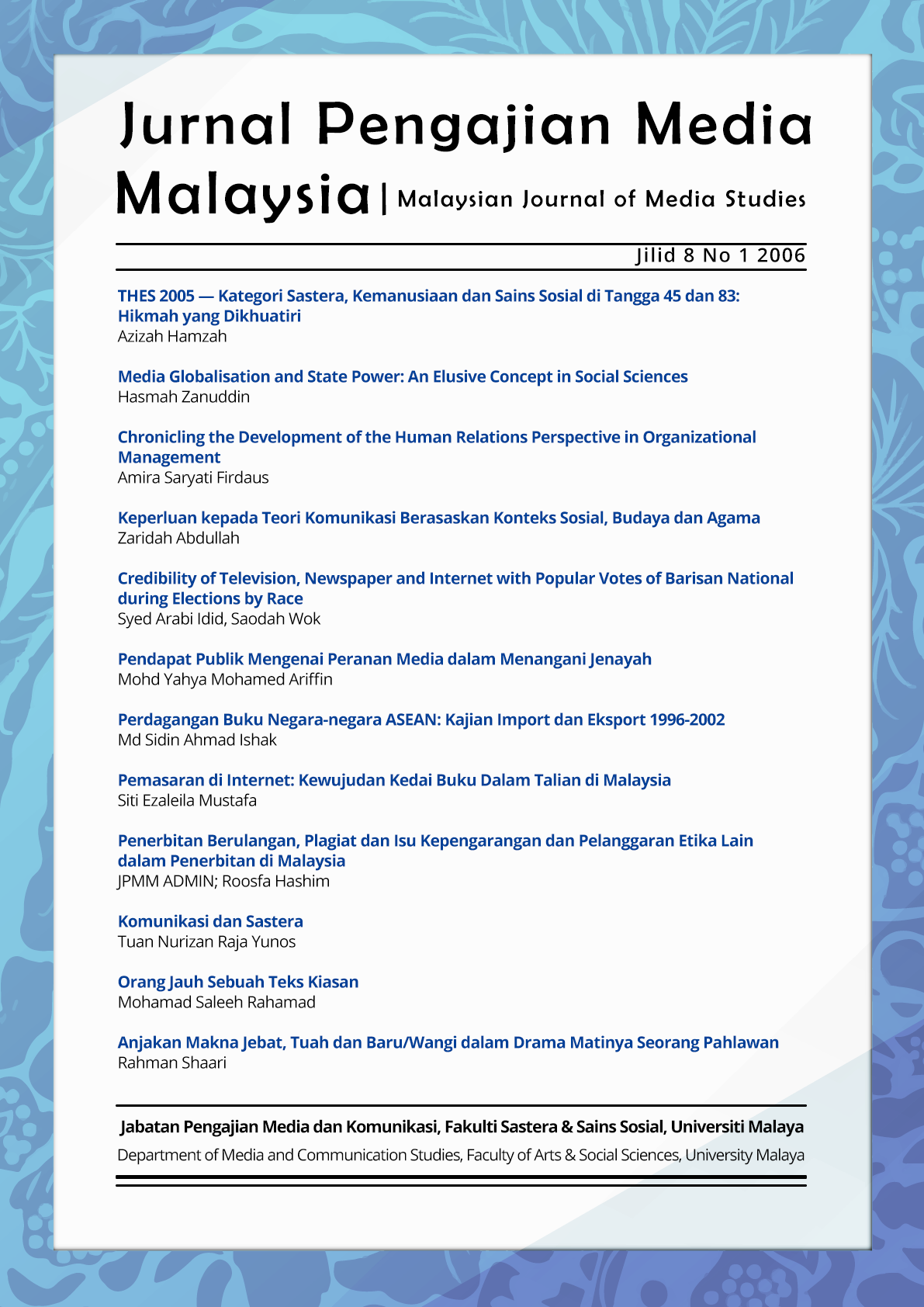Media Globalisation and State Power: An Elusive Concept in Social Sciences
Main Article Content
Abstract
This article discusses the usefulness of state theory and concept in order to explain media globalization. It is important for media researchers, lecturers, and students to understand that media and communication is strongly governed by the state. Thus state theory is the most useful tool to explain state behaviour. State theory and concept has been used and discussed extensively by Krasner (1991), Giddens (1985), and Skocpol (1985). “Statists” like them stress the prime importance of state, power concept and state sovereignty. Scholars of state actions, policies and transformation have generally presumed the existence of separate and analytically distinct “levels of analysis” (Waltz 1979; Singer 1961; Keohane 1980; Krasner 1976, 1991). The state does not make any decision in a doldrum without considering the surrounding factors. So, any decision would have an implication on other nations in the international system. The international system ruled by the globalization wave managed to create a new idea that globalization successfully reduced state power and side step the importance of state. However, no matter how strong the challenge and the globalization force, it could not erase state power, the importance of state and state sovereignty. It might able to weaken the state but it would still exist. So, a country’s decision and policy could not be explained without the theory and concept.
Downloads
Article Details

This work is licensed under a Creative Commons Attribution 4.0 International License.
